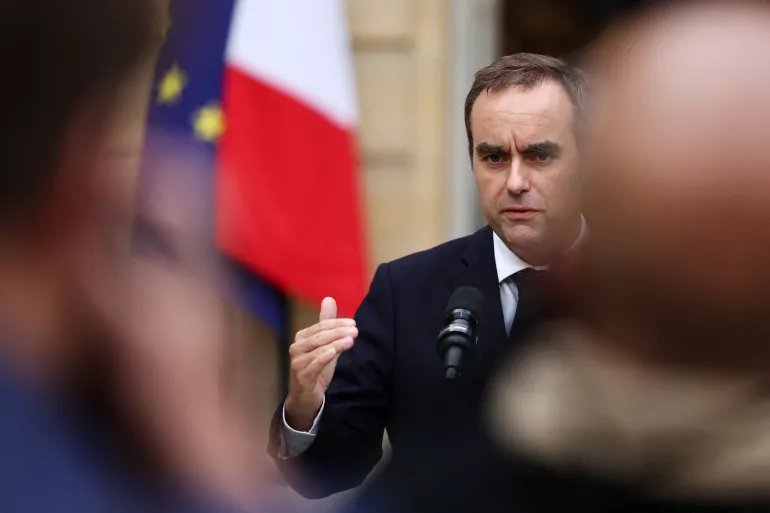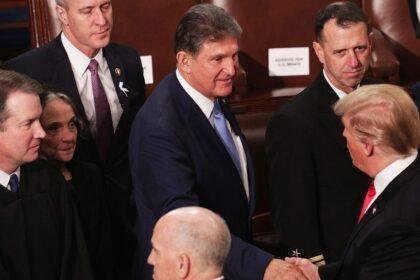Political Turmoil in France: Prime Minister Sebastien Lecornu Resigns After Just 27 Days
In a dramatic turn of events, French Prime Minister Sebastien Lecornu has resigned just hours after unveiling a new cabinet, marking a significant escalation in the ongoing political crisis in France. His resignation, which occurred on October 6, 2025, has deepened the political deadlock that has gripped the nation, raising questions about the future of President Emmanuel Macron’s administration.
A Brief Tenure
Lecornu’s time in office was notably brief, lasting only 27 days, making it the shortest tenure for a French prime minister since the establishment of the Fifth Republic in 1958. He was the fifth individual to hold the position since Macron called for snap elections in June 2024, a move that resulted in a fragmented parliament lacking a clear majority. Lecornu, who previously served as the Minister of the Armed Forces, was seen as Macron’s last hope to stabilize a government beset by internal divisions and public discontent.
In an emotional address following his resignation, Lecornu attributed his departure to the unwillingness of opposition parties to collaborate. He expressed disappointment that political leaders from various ideological backgrounds failed to prioritize national interests over party agendas. “The conditions were not fulfilled for me to carry out my function as prime minister,” he stated, emphasizing the need for selflessness in governance.
The Political Landscape
The current political landscape in France is characterized by a deeply divided parliament. Macron’s centrist bloc holds only 210 of the 577 seats in the National Assembly, while far-right and left-wing parties collectively command over 320 seats. This fragmentation has made it increasingly difficult for any government to pass legislation, leading to a series of political crises.
Lecornu’s cabinet formation was met with immediate backlash from the right-wing Republicans party (LR), which withdrew its support due to Lecornu’s choice of Bruno Le Maire as defense minister. Le Maire, a former finance minister, is viewed by many as a symbol of Macron’s pro-privatization policies, which have drawn criticism from both the left and right. LR President Bruno Retailleau publicly condemned Lecornu’s cabinet, stating it did not reflect the promised shift away from Macron’s ideologies.
Economic Implications
The political instability has had tangible effects on the French economy. Following Lecornu’s resignation, stocks of major French companies fell sharply, with the CAC 40 index dropping by approximately 2%. This decline reflects investor concerns over the government’s ability to implement necessary economic reforms amid ongoing political turmoil.
The backdrop to this crisis includes Macron’s attempts to address France’s mounting debt, which has been exacerbated by COVID-19-related spending. His previous prime minister, Francois Bayrou, proposed significant budget cuts and austerity measures, which were met with widespread public outrage and ultimately rejected by parliament. Lecornu had hoped to navigate these treacherous waters by promising a more collaborative approach, but his resignation indicates that such efforts have failed.
Public Sentiment and Protests
Public sentiment in France has been increasingly hostile toward the government, particularly since Macron’s controversial pension reforms in 2023, which raised the retirement age from 62 to 64. These reforms sparked widespread protests, and the anger has only intensified in the wake of Lecornu’s resignation. Many citizens feel disillusioned with a political system that appears to prioritize party politics over the needs of the populace.
Jacob Ross, a political analyst at the German Council on Foreign Relations, noted that there is a “numb anger” among voters, with many feeling that politicians are out of touch with the realities facing ordinary citizens. This discontent has led to calls for new elections, with opposition parties, including the far-right National Rally, urging Macron to dissolve parliament and seek a fresh mandate from the electorate.
The Future of Macron’s Presidency
As Macron faces mounting pressure from both opposition parties and his own allies, the question of his political future looms large. With his current term set to last until April 2027, Macron’s options appear limited. He could appoint yet another prime minister, call for snap elections, or even consider resigning, although he has publicly ruled out stepping down.
Former Prime Minister Edouard Philippe, a key ally of Macron, has suggested that the president should appoint a caretaker prime minister and call for early elections. Philippe’s comments reflect a growing sentiment among Macron’s allies that the current political impasse is unsustainable and detrimental to the country’s stability.
Conclusion
The resignation of Sebastien Lecornu has intensified the political crisis in France, leaving President Macron in a precarious position. With a divided parliament and widespread public discontent, the path forward remains uncertain. As calls for new elections grow louder, Macron must navigate a complex political landscape that threatens to undermine his presidency and the stability of the French government. The coming weeks will be crucial in determining whether France can emerge from this turmoil or if it will continue to spiral into deeper political chaos.











